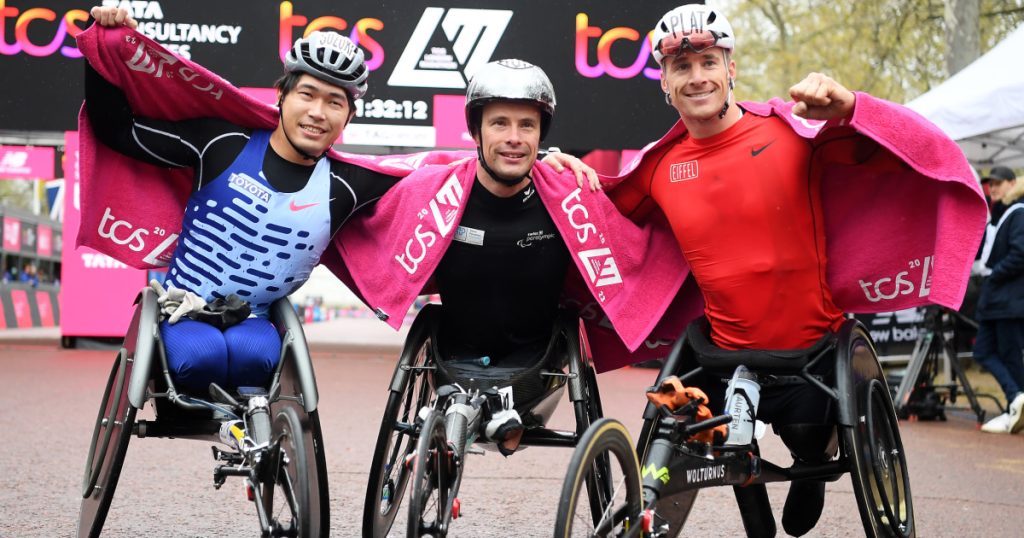In a groundbreaking move for equality in sports, the London Marathon has announced that wheelchair athletes and non-disabled runners will compete for the exact same prize money. The winners of the event will receive $55,000 for first place, $30,000 for second place, and $22,500 for third place. This decision sets the London Marathon apart as the only marathon in the world to offer equal prize money to all competitors, regardless of disability status. This move aims to pave the way for other races and sporting events to offer parity, encouraging more athletes to participate in disability sports and removing financial barriers to entry.
The parity in prize money extends to gender as well, with both male and female wheelchair athletes eligible to receive equal amounts. Paralympian Marcel Hug, considered one of the world’s best wheelchair racers, praised the London Marathon for setting an example of equality and inclusion in sports that he hopes will inspire change in other areas beyond athletics. In comparison, previous marathons like the Boston Marathon awarded significantly lower prize money to wheelchair athletes, with the top prize for the wheelchair division being $40,000, while nondisabled winners received $150,000.
The London Marathon, scheduled to take place on Sunday, follows a 26.2-mile route that showcases iconic London landmarks such as Tower Bridge, the Tower of London, the London Eye, and Big Ben before finishing near Buckingham Palace. Elite wheelchair athletes from around the world, including American racers Daniel Romanchuk, Tatyana McFadden, and Susannah Scaroni, will be competing for the $55,000 prize. British wheelchair racing star David Weir, a six-time Paralympic gold medalist and eight-time London Marathon winner, is also among the athletes vying for top honors.
Hugh Brasher, the event director of the London Marathon, emphasized that the decision to equalize the prize structure is part of a long-standing commitment to greater inclusion for athletes with disabilities. The evolution towards equality in sports began in 1983 with the introduction of a wheelchair event at the London Marathon and continued with the hosting of multiple International Paralympic Committee World Championships in the city. This move is seen as a significant step towards recognizing athletes with disabilities as professionals on par with other professional athletes.
American athlete Daniel Romanchuk, a rising star in wheelchair racing, commended the decision to equalize prize money, predicting that it would have lasting effects beyond race day. Romanchuk highlighted the importance of visibility and opportunities for athletes with disabilities to participate in community running races. He also pointed out the financial barriers faced by many lower-income athletes trying to access specialized equipment for wheelchair racing, which can cost thousands of dollars. Romanchuk, who has been involved in adaptive sports since a young age, stressed the transformative impact sports had on his development and self-confidence, regardless of his physical limitations.
By equalizing prize money for wheelchair athletes and non-disabled runners, the London Marathon is taking a significant step towards promoting equality and inclusion in sports. This decision not only recognizes the professional status of athletes with disabilities but also aims to inspire change in other sporting events. By removing financial barriers to participation and showcasing the talent of wheelchair racers on an equal platform, the London Marathon hopes to set a new standard for inclusivity in sports worldwide.


